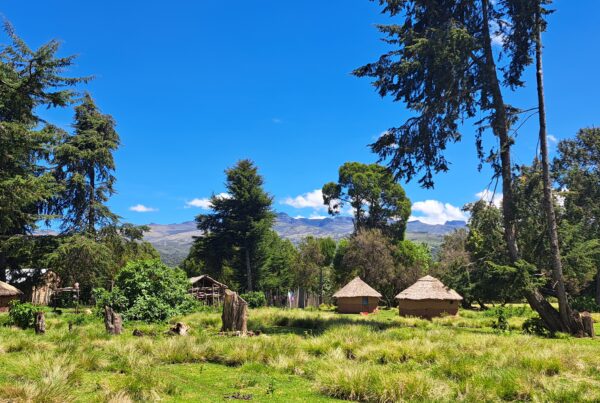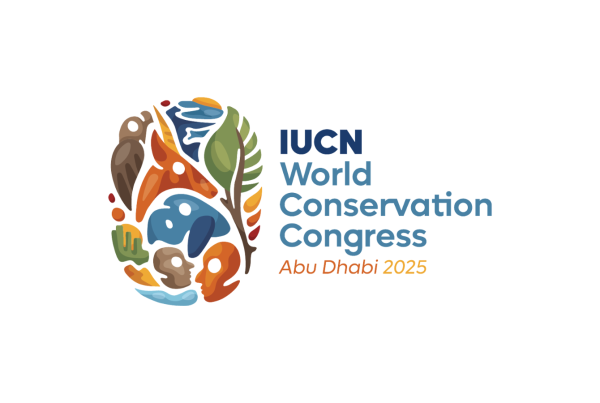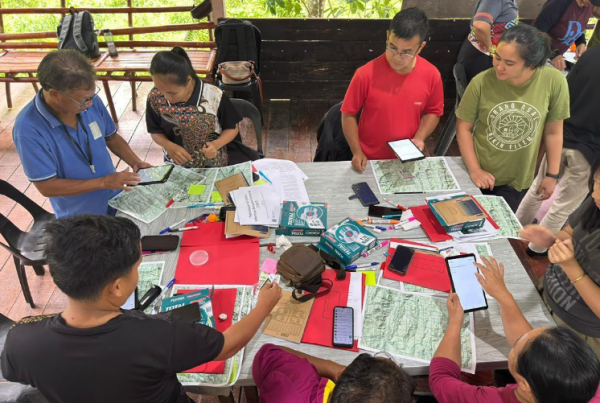The Chepkitale Ogiek’s first Thanksgiving Day was held at Laboot on 18th November 2022 to celebrate 20 years of peace, biodiversity enhancement and land rights achievements.
The occasion was also the official launch of the Chepkitale Ogiek’s participation in the Transformative Pathways project, which directly supports collective actions by indigenous communities towards self-determined land and resource governance, biodiversity conservation and sustainable livelihoods.
As part of the Pathways project, Phoebe Ndiema and Elijah Kitelo, have become biodiversity fellows at the Interdisciplinary Centre of Conservation Science (ICCS) at the University of Oxford, examining how monitoring practices could support both indigenous land rights claims and the fine tuning of current community-led conservation practices. Meanwhile the Elgon Ogiek continue to very effectively conserve their lands, as outlined both in this recent Oryx article and brief Local Biodiversity Outlooks film.
At the Thanksgiving Day at Laboot, neighbouring communities, elected government representatives, and administration and conservation officials, were invited to join the celebrations. This included celebrating the community’s 26th September legal victory when Bungoma court ruled that the gazettement of Chepkitale Trust Land as Chepkitale Game Reserve in 2000 was unlawful, including because it had not been done in consultation with the community.
Type: Article
Region: Africa
Country: Kenya
Theme: Sustainable livelihoods; Traditional and local knowledge; Community-led conservation
Partner: Chepkitale Indigenous People Development Project (CIPDP)

Justin Kenrick and FPP team during Ogiek Celebration day. FPP’s support aided the community win the court case and therefore have been called «Mzungu friends of the community». Photo by CIPDP
The court declared that “the conversion of the land into a national reserve . . . was unconstitutional, unlawful and of no legal effect”, and that “The land shall revert to the pre 6 June 2000 status”. The land should therefore revert back to the community, to be registered as community land under the 2016 Community Land Act.
Part of the evidence considered by the court was a Ministry of Environment, Water and Natural Resources commissioned report, dated 4 November 2013. The judgment refers to the report recommending that “Chepkitale reverts back to its original status of a Community Trust Land as pilot of community government partnership in natural resource protection, management and conservation”. The report itself concluded that the presence of the Ogiek community of Chepkitale on their land plays a key role in protecting the elephants and other key species, as well as in protecting and regenerating their indigenous forest.
The key witness in the court case, the person who led for Mount Elgon County Council in pushing for the conversion of Chepkitale into a Game Reserve in 2000, spoke very powerfully about how mistaken he had been, and how glad he was that the land was returning to the Ogiek.
What was clear from listening to the many presenters was that the biodiversity of Chepkitale – including the forest, animals and moorlands – are best protected by the Ogiek living on their lands.
Professor Nyamasyo spoke of the difference between trees and a forest. Growing exotic trees in straight lines is one thing, but a real forest is something else. A real forest is an indigenous forest with a great diversity of plants and animals depending on each other, including the communities who have lived on their lands since time immemorial. Across the world, conservation is changing from its old colonial approach of evicting communities from their lands to the modern scientific approach of recognising the land rights of those living within the forests. Indigenous peoples are now recognised as the best custodians of their lands.

Peter Kitelo (CIPDP Executive Director) recounts the journey towards the landmark victory. The celebration was attended by the local community, indigenous communities from East Africa, Government officials and partners. At the background is the crest of Mt.Elgon. Photo by CIPDP.
More than 2,000 people participated, including well-wishers from neighbouring communities, and representatives from communities from across East Africa, including from many parts of Kenya, Tanzania, Uganda and DRC. These communities spoke of their own struggles for their lands and their appreciation of the unity, effort and success of the Chepkitale Ogiek.
Since the case was filed in court in 2008, one of the 4 people who had petitioned on behalf of the community has since passed on. Ben Muigei Cheptuit was represented by his daughters and one of his sons. They spoke powerfully about their father’s commitment to the community’s struggle.
Meanwhile, in a separate court case concerning a different area of the community’s land (which was gazetted as a forest reserve rather than a game reserve), the Ogiek lost the first round in a ruling on 19th October 2022. However, this ruling had severe problems, including that it appeared to ignore the earlier September court decision, and it sought to make decisions on issues it hadn’t been asked to decide on. The Ogiek look forward to the outcome of their appeal in this second case.
Perhaps the high point of the Thanksgiving day was when the representative of the Governor of Bungoma reassured the community that the County would not appeal the Court’s 26th September decision to revert Chepkitale Game Reserve back to the community as community lands. This news was received with great delight and thanks.

Kipkera hill, source of many medicinal plants which regenerate naturally. Photo by CIPDP
The Chepkitale Ogiek hope to hold such a Thanksgiving annually to thank all within the community and beyond who are helping them, and to reflect on their struggles, setbacks and achievements.
The following day, the community discussed its next steps. These included the development of working groups to take forward improvements in education and health provision, economic community enterprises, sustainable land management, legal and policy advocacy, governance, planning monitoring & evaluation, communication, and cultural revitalisation.
Thanksgiving Day certainly revitalised all who attended, and the Transformative Pathways project is a powerful support to the community’s effectiveness in conserving and enhancing its cultural, social and ecological flourishing and well-being.
For more information about the Chepkitale Ogiek Thanksgiving Day: https://chepkitale.org/chepkitale-ogiek-thanksgiving-day/


